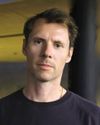Solving the Wildest Problems
Entrepreneur US
|July - August 2022
Not all of life's problems can be quantified, and not all have right answers. Economist Russ Roberts offers a different way to approach them.

Russ Roberts was trained to solve problems. But he has found a kind of problem he cannot solve-at least, not with the tools he was trained with.
Roberts is one of the most recognizable names in economics, thanks to his popular podcast "EconTalk." He's currently president of Shalem College in Jerusalem and a research fellow at Stanford University's Hoover Institution. This means he often thinks in numbers and systems, and to solve problems with cold logic. But when a friend asked for advice on whether to have children or not, Roberts realized that humans often grapple with what he calls "wild problems"-the big, life-changing decisions we all must make, where there is no single right answer and where outcomes are unpredictable.
So how do you solve those problems? That's what he set out to learn, and it is the subject of his new book, Wild Problems, which draws lessons from Charles Darwin, Bill Belichick, and basically everyone in between.

You have been taught to solve problems with economic logic. But as you write in the book, "I have come to believe that when it comes to the big decisions of life, those principles can lead us astray." How did you come to realize that?
Economics is about tradeoffs. We don't have enough money to have everything we want. We don't have enough time to enjoy everything we want. And so the essence of the economics view of human behavior is that we try to be as happy as possible, facing that reality of finite money and finite time.
Cette histoire est tirée de l'édition July - August 2022 de Entrepreneur US.
Abonnez-vous à Magzter GOLD pour accéder à des milliers d'histoires premium sélectionnées et à plus de 9 000 magazines et journaux.
Déjà abonné ? Se connecter
PLUS D'HISTOIRES DE Entrepreneur US

Entrepreneur US
Why Junk Removal Is Booming
As e-commerce grows, so do our garbage piles.
2 mins
November - December 2025

Entrepreneur US
10 Hottest Trends in Franchising Today
Good news: You can buy a brand in the hottest categories! We list 600 of them.
1 mins
November - December 2025

Entrepreneur US
How to Hire the Perfect Employee in 6 Steps
Founders are often terrible at hiring. We have 40 years' worth of data on how to do it right.
7 mins
November - December 2025

Entrepreneur US
HOW TO RAISE MONEY IN AN AI-OBSESSED WORLD
If you're building an AI company, the fundraising rules have shifted. Here's what it takes to succeed.
2 mins
November - December 2025

Entrepreneur US
Reinventing the Flower Shop
French Florist was once a struggling florist shop in Los Angeles. Here's how it transformed into an innovative franchise that's taking on the industry.
3 mins
November - December 2025

Entrepreneur US
Why Personal Care Is Booming
It's on people's minds, and good for the bottom line.
2 mins
November - December 2025

Entrepreneur US
Why Pet Franchises Are Booming
Our relationships with our pets are changing.
2 mins
November - December 2025

Entrepreneur US
THINK OUTSIDE THE BUBBLE
As an investor in emerging markets, George Rzepecki looks for opportunities—and founders—that don't fit the Silicon Valley mold.
2 mins
November - December 2025

Entrepreneur US
The Top Franchises for Veterans
If you've served in the military, these 150 franchise brands really want you!
1 mins
November - December 2025

Entrepreneur US
Why I Keep Hiring the Same People
I'm a serial entrepreneur, and I owe my success to keeping my team consistent-from company to company.
2 mins
November - December 2025
Translate
Change font size

